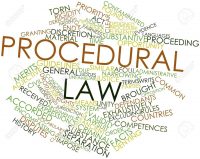Venture capital is an investment strategy with a high risk. This type of investment is often used to fund a startup company that has a potential for growth. In 2000, the government created the Markets Venture Capital Program Act. This law allows the SBA to make regulations that are necessary to implement a venture capital program. Venture capital is a method some businesses use to raise money. Typically, it is sought after by relatively new, privately held companies that would (…)
Transportation Law
Transportation law is the body of law that governs transportation infrastructure and its use. It regulates the way that people travel using any method of transportation including railways, air travel, vehicular travel and even waterways. Much of transportation law comes from the government agencies that make regulations and oversee compliance with the regulations that they create. Transportation law also involves companies and individuals that must understand and follow the regulations. Where does transportation law come from? Most transportation law in (…)
Trademark Law
Trademarks are symbols that mark a product to show that it comes from a particular source. Some of the earliest trademarks can be dated back to the Roman Empire when blacksmiths would use a trademark to show that they had made a particular sword. Samson is the first company in the United States that used a trademark. Names of Marks The name of a business or company is a trade name. The terms “trade name” and “commercial name” mean any (…)
Tort Law
Tort law is the area of law that protects people from bad acts of others. When a person commits a tort, they violate civil law. If a person is damaged by someone else’s wrongful act, they can bring a claim for compensation against the person who commits the tort. The purpose of tort law is to ensure that wrongdoers pay for the damage that they cause instead of the victims. Torts aren’t crimes A tort can be a crime. However, (…)
Timber Law
Timber laws cover all aspects of the timber industry. This includes trespass actions, warranty issues, contract matters, taxation, and succession planning for timberland. Many of the laws that govern timber and its use are made by the states. There are some federal regulations regarding the use of timber as well. Timber law focuses upon the rules and practices for owning, growing, harvesting, buying and selling, and making products from trees on forested land. It encompasses the relatively unique application of (…)
Technology Law
Technology law is complicated as technology is forever changing. Along with new technological advances new laws are created to help control issues that may arise. The internet has been one of the main advances in technology where laws have had trouble keeping up. There are many areas of technology law including information, internet, and civil liberties including the right to free speech. Technology Law is a relatively new term in our language – so new that it means different things (…)
Tax Law
Tax law is the practice of law that relates to the assessment and payment of taxes. Tax laws come from a variety of sources. They come from federal, state and local authorities. They’re based in federal and state constitutions, laws and regulations. Tax law involves understanding, implementing and defending the payment or non-payment of taxes. Tax lawyers help their clients understand tax laws and conduct their affairs in a way that’s advantageous with regards to tax laws. When disputes occur, (…)
Statutory Law
Statutory law is law that’s written by a legislative body. It’s law that a government deliberately creates through elected legislators and an official legislative process. It’s up to the judiciary to interpret and enforce statutory law, but the judiciary can’t create statutory law. Laws created by statute are often codified. That means they’re all put together in one place and given numbers for reference. For example, the United States Code is the indexed collection of U.S. law. States have their own collections of statutes (…)
Sports Law
Sports law is the collection of the many different types of law that impact the sports industry. Sports law might involve issues that relate to professional or Olympic athletes. It also relates to laws that govern youth and amateur sports. There are many different types of law that impact the sports industry like contract law, personal injury law, trademark, criminal law, and athletic administration. Sports lawyers live and work throughout the United States. What is sports law? Even though professional sports agents might (…)
Space Law
Does the United States own the moon? Have you ever wondered if there are laws about space? Space law is the body of laws, agreements and treaties that govern outer space. Worldwide leaders must grapple with how to regulate activity in space. Space law covers issues like rules for exploration, weapons use, damage for liability, rescue efforts for astronauts in distress, environmental regulations and records of space activity. What do space lawyers do? Space lawyers draft international treaties and national (…)
Social Security Disability Law
Social Security disability laws provide assistance to individuals with disabilities. Benefits provided under these laws include insurance that will pay benefits to both the disabled individual and their family as long as you have paid enough in social security through work. Supplemental security income is provided based on financial needs. An attorney is not allowed to charge you a fee unless it has been approved by Social Security. Social Security Disability Insurance benefits are only paid to individuals who are totally disabled, as that term (…)
Securities / Capital Markets Law
Securities law (or Capital Markets law) is the group of laws and regulations that govern the issuance of securities. A security is a financial instrument usually designed to raise money for a business from investors in the business. Securities law dictates what a corporation has to do in order to offer their investment to the public. The laws exist in order to make sure that public investments are fair to everyone who might invest in the company. What is a (…)
Real Estate Law
Real estate law is the area of law that governs buying, using and selling land. It’s the law that governs how people acquire property and what they can do with the property that they own. Real estate law is also called real property law. This law is called real estate because it’s about real property. Real property is land as opposed to personal property which is objects. Fixtures that are permanently on the land like buildings or other large structures are (…)
Railroad Law
Railroad laws encompass all areas that are related to railroad services. Most often the cases regarding railroad laws will be wrongful death litigation by employees, passengers, or non-passengers, or personal injury cases. Another issue that arises is workers compensation for when railroad employees are injured while working. The major (“Class I”) railroads in the United States, of which there are fewer than ten, and the multitude of regional (“Class II”) and short line (“Class III”) railroads consume types of legal (…)
Public Health Law
Law plays an important role in the public health care system. A public health official has many responsibilities and legal rights when protecting and promoting their community’s health. There are three areas associated with public health law, law of populations, prevention of disease and injury, and police power. Public health law is a field that focuses legal practice, scholarship and advocacy on issues involving the government’s legal authorities and duties “to ensure the conditions for people to be healthy,” and (…)
Property Law
Property law is the area of law that governs what people own. It’s the area of law that says who can own land and personal items, how they can use them and with what conditions. Property law applies to both real property and personal property. Ownership and use of property is an area of law that impacts everyone in society. Property law is also an important part of estate law, family law and municipal law. Property law is the area of law that (…)
Product Liability Law
Product liability law is a type of personal injury law that gives victims a legal cause of action when they’re hurt because of a dangerous product. People and corporations who make products must make products that are safe. Products liability is the area of law that governs what manufacturers must do to protect public safety and what rights victims have if they’re hurt because of a defective product. Product liability law is also called products liability law. Product liability law (…)
Procedural Law
Procedural law is the collection of rules that govern how courts do their business. All levels and types of courts use procedural law. It controls how courts hear cases. It also dictates what a party must do in order to bring their case before the court. Where does procedural law come from? Each court has their own procedures. For example, the Federal Rules of Civil Procedure apply to federal courts. States have their own rules of civil procedure. There are also separate (…)
Private / Hedge Funds Law
Private funds and hedge funds are investment funds that are a part of a diverse market range. In the United States only accredited investors are allowed to participate in Hedge Funds. The term hedge fund is credited to Alfred W. Jones, a financial journalist who first used the phrase “hedged fund” in 1949. A private / hedge fund is an investment fund that pools capital from accredited investors or institutional investors and invests in a variety of assets, often with (…)
Private Equity Law
Private equity law covers private equity firms that pool investments of pension funds and other large investors to purchase assets and other companies. A private equity lawyer will help form the funds and help negotiate the terms of the contracts. The private equity industry in the United States began around 1946 when two venture capital firms were founded. Private equity is a type of investment where investors’ money is used to buy out businesses. It’s like Dragons’ Den! In private (…)




















